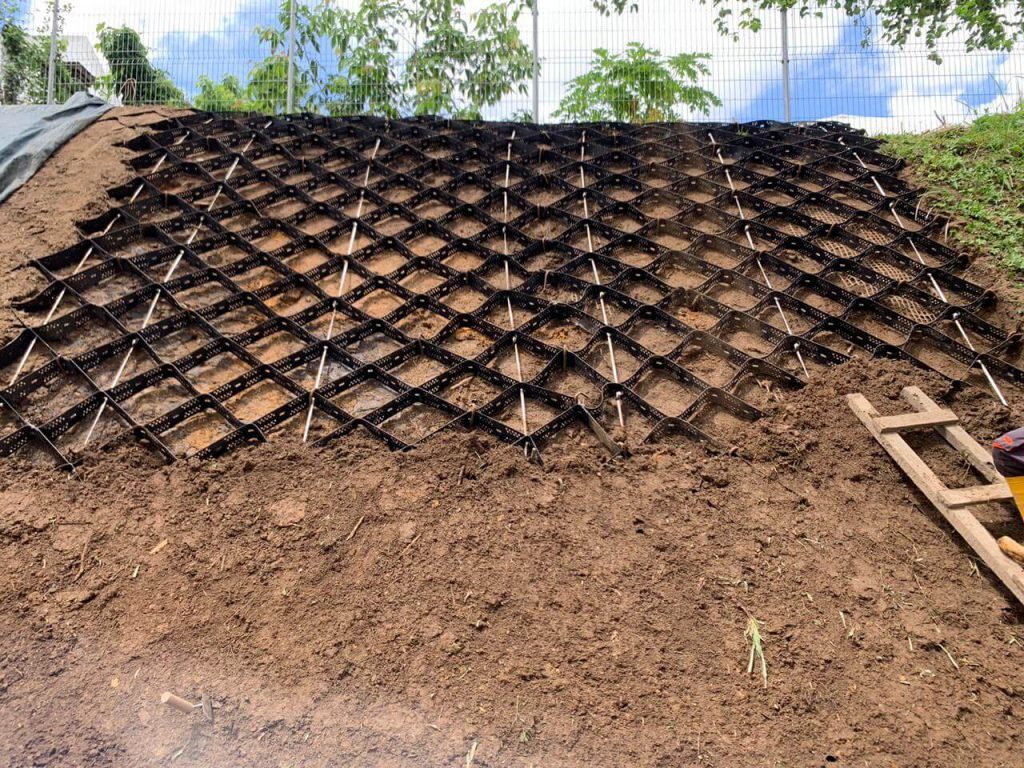Erosion control
Meaning of erosion control
The natural environment, through the different elements of nature such as wind and water, causes the movement and breaking of soil, stones, or sand. This is the reason why uncontrolled erosion can be dangerous to the environment and also the buildings, hence erosion control is a necessity. Proper management not only preserves natural sceneries but also offers protective measures against damage within man-made structures. Due to this, this paper will discuss what makes erosion happen and how it can be managed through various strategies while considering its value in promoting the stability of ecosystems and sustainable development.
When and how does erosion happen?
Different circumstances caused by both human beings as well as nature cause erosion to be experienced. This takes place naturally because of rates of rainfall, river currents, velocity of wind, and wave action which take away more materials from the top layers of the surface over a long period. Deforestation; farming methods used by people or building works are some instances that can speed up this breakdown through interference with soil’s stability. This is most common in places with loose sandy soil like steep slopes or when there is abundant rainfall or strong winds. Urban areas that convert natural land face higher risk because there is no proper management of surface waters resulting in loss of topsoil through runoffs.
What is erosion control?
Erosion control is a series of measures designed to minimize unnecessary soil loss and sedimentation in vulnerable locations. In agricultural and urban landscapes, these practices are meant to stabilize soil, manage water runoff, and conserve the natural environment. The reason erosion control goes beyond saving just soil is because it also helps keep water clean, maintain habitats for wildlife, and support farming. Through effective implementation of erosion control measures, communities as well as ecosystems can be protected against the adverse effects of erosion on infrastructure and natural resources.
What are the methods used for controlling erosion?
Each method applies to specific conditions and types of causes of erosion, often integrating several strategies to achieve the best results. For example, physical barriers such as silt fences or sediment basins are used to trap eroded soil before it enters waters. Vegetative approaches entail planting grass, trees, and shrubs among other vegetation types that hold the soil together and absorb water; this technique works best on slopes or in buffer zones along riverside areas. While also preventing loss through erosion, geosynthetics involve synthetic fibers laid over the soil to make it stable while encouraging the growth of vegetation. Additionally, engineering modifications like terracing, contour plowing, and the construction of retaining walls can reshape landforms to reduce erosion risks.

Why is erosion control important?
Soil loss is a major issue in ecosystems and infrastructure, hence the necessity for erosion control. To manage this problem, it is crucial to have effective erosion controls capable of degrading land meant for agriculture or construction. This also causes water pollution from rivers and lakes which are mainly caused by increased sedimentation. The prevention of these developments through good maintenance of soil structure is regarded as an efficient measure aimed at preventing erosion, maintaining proper land use, and ensuring stable healthy environments within which we live. No praise can be enough for these behaviors that help in mitigating some long-term ecological as well as economic costs associated with land degradation.
What are the advantages of erosion control?
Erosion control brings about so many benefits that are critical to environmental health and economic development. It helps prevent soil degradation thereby sustaining agricultural production by stabilizing the soil. Moreover, it acts against water bodies’ pollution due to their siltation thus supporting aquatic biodiversity and water quality. In addition to enhancing biodiversity by preventing habitat loss or fragmentation, it ensures that there are no natural habitats that would otherwise have been destroyed. Furthermore, its aesthetic qualities safeguard property values hence making properties more appealing and livable while retaining the landscape’s functional characteristics too. Overall, these benefits highlight the crucial role of erosion control in sustainable development and environmental conservation.
What happens if erosion is not controlled?
The impact of erosion not controlled can be catastrophic. The most common result is the reduction of farm products due to soil loss but also desertification. Structures like roads and houses may become weak thereby being prone to destruction. Also, a lot of sedimentation in rivers and tributaries lowers water standards, destroys fish life, and creates possibilities for flooding. These costs are heavy on communities’ funds as well as government budgets.
For effective erosion control solutions and products, consider partnering with Strata Global. Their innovative applications can help you manage erosion, preserve natural environments, and protect your structures using cutting edge geosynthetic products like StrataWeb® geocell, StrataSlope™ system, StrataWall™ system. Contact Strata Global today to learn more about their solutions for erosion control and sustainable development.
